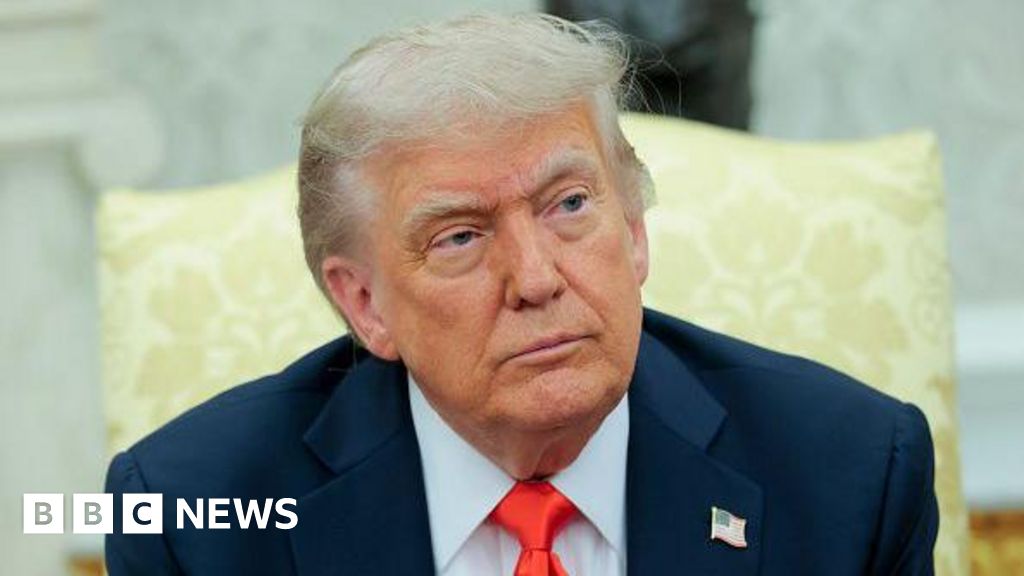What Happened
Recent reports indicate that U.S. President Donald Trump rejected an Israeli proposal to assassinate Iran’s Supreme Leader, Ayatollah Ali Khamenei. This decision was communicated to Israeli Prime Minister Benjamin Netanyahu during a conversation following Israel’s military strikes against Iranian targets. According to U.S. officials who spoke to CBS News, Trump expressed that such an action would not be advisable. The Israeli government has not confirmed or denied the specifics of this conversation, with Netanyahu stating that he would not engage in discussions about alleged conversations that may not have taken place.
The context for this conversation stems from escalating tensions between Israel and Iran, particularly after Israel launched attacks on Iranian nuclear infrastructure and other military targets. The conflict has reportedly continued for several days, with both nations exchanging strikes. In light of these developments, Trump has publicly stated that the U.S. would support Israel but also emphasized that the U.S. had no involvement in the recent attacks on Iran.
Key Details
-
Participants: The key figures involved in this situation are U.S. President Donald Trump, Israeli Prime Minister Benjamin Netanyahu, and Iran’s Supreme Leader Ayatollah Ali Khamenei.
-
Timeline: The conversation regarding the assassination proposal reportedly took place shortly after Israel initiated its military operations against Iran on a Friday, with the conflict entering its third day by Sunday.
-
Official Statements: Trump has not publicly commented on the assassination proposal. Netanyahu, during an interview, refrained from confirming the specifics of the conversation, stating, “There’s so many false reports of conversations that never happened.”
-
Israeli Position: An Israeli official indicated that Israel generally does not target political leaders for assassination, focusing instead on military and nuclear threats.
-
U.S. Position: Trump has reiterated that the U.S. had no role in the attacks on Iran and warned that any Iranian attack on the U.S. would provoke a strong military response.
Multiple Perspectives
The rejection of the assassination proposal has elicited varied interpretations:
-
Support for Trump’s Decision: Some analysts argue that rejecting the assassination plan could be seen as a move towards de-escalation, potentially preventing a broader conflict in the region. This perspective emphasizes the importance of diplomatic solutions over military actions.
-
Criticism of the U.S. Stance: Conversely, critics argue that Trump’s decision may embolden Iran and undermine Israel’s security. They contend that strong military actions against key figures in hostile nations can serve as a deterrent and that failing to act could lead to increased aggression from Iran.
-
Israeli Perspective: From Israel’s viewpoint, the rejection of the assassination may reflect a complicated relationship with the U.S. regarding military strategy in the region. Some Israeli officials may feel that their security interests are not fully aligned with U.S. policy, leading to tensions in their partnership.
Context & Background
The relationship between Iran and Israel has been fraught with tension for decades, primarily due to Iran’s nuclear ambitions and its support for militant groups opposed to Israel. The assassination of a high-profile political leader such as Khamenei would represent a significant escalation in hostilities and could provoke severe retaliatory actions from Iran.
The U.S. has historically played a complex role in Middle Eastern geopolitics, often balancing its support for Israel with the need to manage relations with Iran. The recent military actions by Israel against Iranian targets have raised concerns about the potential for a wider conflict in the region, especially given the volatile nature of U.S.-Iran relations.
What We Don’t Know Yet
Several uncertainties remain regarding this situation:
-
Future Military Actions: It is unclear how the ongoing conflict between Israel and Iran will evolve, particularly in light of Trump’s rejection of the assassination plan. Will Israel continue its military operations, or will there be a shift towards diplomatic negotiations?
-
Impact on U.S.-Iran Relations: The implications of this decision on future U.S.-Iran relations are uncertain. Will this lead to a reevaluation of U.S. strategies in the region, or will tensions continue to escalate?
-
Internal Reactions: The internal reactions within both the U.S. and Israeli governments to Trump’s decision have not been fully disclosed. Understanding how various factions within these governments view this decision could provide insight into future policy directions.
In conclusion, the rejection of the assassination proposal marks a significant moment in the ongoing tensions between Iran and Israel, with potential implications for U.S. foreign policy and regional stability. The situation remains fluid, and further developments are likely as both nations navigate this complex geopolitical landscape.


